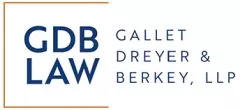New York City's newly enacted penalties for landlords of unlicensed cannabis, tobacco and e-cigarette businesses, has cast a wide net and includes penalties for mortgage lenders and anyone subleasing to the business. Violations include heavy fines for failure to evict and there are still many questions about how the new law will be implemented. Landlords, mortgage holders, subleasers, managing agents, etc. beware!
New York City Local Law 107 imposes fines on property owners who knowingly lease premises to unlicensed cannabis sellers. "Owners" include not only "the owner...of a premises," but also any "mortgagee or vendee in possession, assignee of rents...or any other...entity directly or indirectly in control of a premises." N.Y.C. Code §10-186
Commercial mortgages customarily include an assignment of rents, so the statute literally threatens virtually all mortgage lenders with liability. An identical definition appears in the Multiple Dwelling Law, but at least one court held that a collateral assignee of rents to secure a loan is not an "owner" under the MDL. Greenpoint Bank v. John, 256 A.D.2d 548 (2d Dept. 1998). The court should take the same position in interpreting Local Law 107 but, as I advise our bank clients, "Don't be a test case."
The definition of "unlicensed seller" includes unlicensed sellers of tobacco products as well as "illicit cannabis." (§10-186.b.) I refer below only to unlicensed cannabis sales, but the law applies with equal force to the unlicensed sale of cigarettes, e-cigarettes and other tobacco products.
A Community Board official is quoted as saying, "These landlords who knowingly rent spaces to illegal smoke shops have no regard for the law or the safety of our children...This will be a great step in the right direction to hold those accountable..." (New York City Council Release at https://council.nyc.gov/press/2023/08/14/2454/) However, Local Law 107 imposes no penalties against the seller. Instead, it seeks to hold "accountable" the private entity that fails to take on the task of enforcing public policy.
Some landlords and a few mortgage lenders may know in advance that a tenant is engaged in illegal activity. The far likelier scenario is that they discover the illegality after the unlicensed sales commence, and in many cases not until notified by a law enforcement agency. With the new law, New York City has shifted the obligation to enforce the licensing requirement to the property owner, the mortgage lender and other third parties.
Attorneys must be aware of the pitfalls that their often-innocent clients face and consider action on three fronts. First, existing documents, such as leases and mortgages, must provide maximum protection. Second, clients must adopt due diligence procedures to determine whether tenants are acting properly. Third, prompt action is required to take advantage of a statutory affirmative defense against liability.
Knowingly leasing or permitting the use of property for the
unlicensed sale of cannabis is a necessary, but not a sufficient,
predicate to an owner's liability. To be liable, the owner must
also:
(i) Have received written notice by an "agency authorized...to
inspect for violations" that the agency has inspected and
found unlicensed sales, with 15 days to appeal (§10-186.c.1
and 2);
(ii) Receive a notice that a subsequent inspection by an agency
shows that the same premises continue to be used for the unlicensed
sale (§10-186.d.);
(iii) Must not have commenced a pending action to evict the tenant
(§10-186.b.); and
(iv) Receive a civil summons for the violation after the second
agency notice, which summons is returnable in the office of
administrative trials and hearings, resulting in a finding against
the owner and the imposition of a fine (§10-186.d.).
The written notice may be given only if "the portion of the property used for the unlicensed sales" is not occupied for any other lawful purpose (§10-186.c.1.). Local Law 107 does not clearly answer whether the notice can be given if there is an unlicensed sale at a neighborhood donut shop.
The law applies only to commercial premises without defining "commercial" (§10-186.b.). A single-family, owner-occupied condominium unit is probably not commercial. A multi-family residential building may be "commercial" premises, depending upon factors such as whether ground floor space is rented to a business. A three-story building with ground-floor commercial space and residential space on the upper floors may be covered if the sales are in the commercial space, but applicability to the residential space may hinge on factors such as whether the residential space is occupied by the owner or by a tenant of an investor owner.
If there is an ultimate finding against the owner, the civil penalty is $5,000 for the first violation and $10,000 for each subsequent violation. The law does not specify whether fines are per sale, per day, or per agency inspection. Local Law 107 provides that the fines "shall be" the specified dollar amount, not "up to" that amount. (§10-186.d.) There is apparently no discretion permitting a lesser fine.
The owner can defend against a claimed violation by showing that the owner has commenced a proceeding to evict the tenant. (§10-186.d.) The statute states that it is "the" owner who must commence the proceeding. It is unclear whether, for example, a vendee in possession can assert the affirmative defense if the proceeding is commenced by the fee title owner, because the vendee in possession was not the party that commenced the proceeding.
I suggest that these hyper-technical interpretations of "shall be" and "the" owner should be assigned to the dustbin of bad drafting. Neither a vendee in possession nor an assignee of rents should have liability just because the eviction action was commenced by the fee title owner. Likewise, even if there is a liability, levels of fault should be considered in determining the fine.
To limit risks, anyone who may be classified as an owner should conduct due diligence. Documents should be reviewed to protect against liability. Consider the following steps.
- Commercial leases should expressly prohibit unlicensed sales.
- Permitted subleases should require the same protections and obligate the sublandlord to commence summary eviction proceedings when there is an apparent violation.
- If the tenant is authorized to sell cannabis, the tenant must provide a copy of the license before taking occupancy and copies of license renewals.
- Consider increasing the security deposit requirements for licensed sellers to protect against a license revocation or nonrenewal.
- The lease should authorize summary eviction by the landlord. An action for ejectment under Real Property Actions and Proceedings Law (RPAPL) Article 6 is an affirmative defense, but a summary proceeding under Article 7 is preferred if available. Unfortunately, the RPAPL does not permit summary proceedings by a mortgagee, so resorting to Article 6 to perfect the affirmative defense may be required. Commercial mortgage forms should require the landlord to commence a proceeding and permit the mortgagee to do so on behalf of the owner if the owner fails to act after demand, although the enforceability of the latter right is questionable (See, Key Bank v. Becker, 88 N.Y.2d 899 [1996]; Winter and Loeb, Practice Commentaries to RPAPL §721). It is better to have a contract right to commence a summary proceeding and be unable to use that right than not to have the right at all.
- If appropriate, leases should require the tenant to provide an affidavit that no cannabis is being sold without a license.
- Indemnification provisions are a must. Despite cases prohibiting indemnification against fines or negligence, Local Law 107 should not prohibit indemnification because the party giving the indemnification is either the wrongdoer or someone with greater power to stop the wrongdoer.
- Contracts with managing agents should require that they conduct inspections and take action if unlicensed sales are occurring.
- Mortgages should provide that the failure of the borrower to pursue aggressively the eviction of a tenant acting unlawfully is a loan default.
- Tenant estoppel certificates should provide indemnification and an obligation to provide copies of licenses and renewals directly to the mortgage lender.
- If the lender performs periodic property inspections, as many bank mortgage lenders do, cannabis sales should be included in the inspector's checklist to avoid regulatory criticism that the bank has deliberately closed its eyes to an illegal occupancy.
- Managing agents who are authorized to negotiate and sign leases should make sure that the lease provides the protections that the landlord needs.
- Managing agents should also conduct periodic inspections and establish procedures to make sure that a notice from a law enforcement agency regarding unlicensed sales on the premises is not ignored. Instead, the notice should be reported up the line so that the landlord or the agent commences eviction proceedings immediately.
- Employee training procedures should be updated to train employees to know what to look for and act promptly if problems arise.
I suspect that Local Law 107 will soon be considered an unfortunate annoyance as more licenses are granted for cannabis sales and the unlicensed sellers cease to be important components of the supply chain. However, your client does not want to be the one landlord who becomes a test case when a community group complains that the client allowed "undesirables" into the neighborhood. An ounce of prevention is less expensive than a pound of cure.
The content of this article is intended to provide a general guide to the subject matter. Specialist advice should be sought about your specific circumstances.


